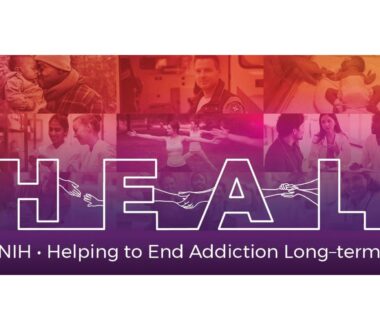
Economic Evaluations of Establishing Opioid Overdose Prevention Centers in 12 North American Cities: A Systematic Review
In this systematic literature review published in Value in Health, CHERISH Research Affiliates Czarina Behrends and Ahmed Bayoumi, CHERISH staff members Jared Leff, Jazmine Li, and Erminia Fardone, CHERISH investigators Kathryn McCollister, Sean M. Murphy, and Bruce Schackman, and former NIDA summer intern, Weston Lowry, analyzed 16 studies that summarized and identified gaps of economic […]

Economic benefits of substance use disorder treatment: A systematic literature review of economic evaluation studies from 2003 to 2021
The economic burden of substance use disorder (SUD) is significant. It encompasses clinical and societal costs such as health care and social services, criminal justice resources, loss of productivity, and premature mortality, and is estimated to cost more than $700 billion per year in the United States. To understand the gravity of these economic costs, […]

Budget Impact Tool for the Incorporation of Medications for Opioid Use Disorder into Jail/Prison Facilities
Despite evidence that medications for opioid use disorder (MOUD), namely methadone, buprenorphine, and naltrexone, provided at the point of incarceration improve the well-being of the individual and the public, financial and administrative limitations in jail/prison healthcare often serve as barriers to this recommended first-line treatment for OUD. In fact, evidence indicates that more than 80% […]

Weighing the Costs and Benefits of Initiating Extended-release Injectable Naltrexone Compared to Buprenorphine-naloxone
Naltrexone and buprenorphine are two effective medications for opioid use disorder (OUD). Naltrexone, which is typically given as a monthly extended-release injection (XR-NTX), and daily oral buprenorphine, which is typically combined with naloxone (BUP-NX), are prescribed in outpatient or office-based medical settings. XR-NTX patients, however, need to complete detoxification before starting treatment. Results from a […]

Economic Evaluations of Pharmacologic Treatment for Opioid Use Disorder: A Systematic Literature Review
In this systematic review, researchers affiliated with the Center for Health Economics of Treatment Interventions for Substance Use Disorder, HCV, and HIV (CHERISH) including CHERISH staff Erica Onuoha and Jared Leff; CHERISH investigators Bruce R. Schackman, Kathryn E. McCollister, and Sean M. Murphy; and CHERISH Advisory Board member Daniel Polsky, identified new studies supporting buprenorphine and methadone as economically advantageous medications for […]

Harmonizing Healthcare and Other Resource Measures for Evaluating Economic Costs in Substance Use Disorder Research
Lindsay Allen, PhD, MA, Feinberg School of Medicine at Northwestern University The National Institute on Drug Abuse, or NIDA, considers data harmonization in substance use disorder, human immunodeficiency virus (HIV), and hepatitis C virus (HCV) research a high-priority. Data harmonization allows investigators to synthesize data across independent studies and promote more rigorous and comparable analyses of […]

CHERISH Awarded Five-year Center of Excellence Grant to Continue Substance Use Health Economics Research
The National Institute on Drug Abuse (NIDA) of the National Institutes of Health has awarded the Center for Health Economics of Treatment Interventions for Substance Use, HCV and HIV (CHERISH) a five-year grant to continue the Center’s activities as a national center of excellence. CHERISH was founded in 2015 as a multi-institutional center for health […]

Methodology Consultation Success: Dr. Adam Carrico
“Dr. Kathryn McCollister’s input strengthened our application and we look forward to collaborating on this important and timely project that will provide valuable information on both the effectiveness and cost of this mHealth intervention.” Dr. Adam Carrico Approximately 1.6 million US adults used methamphetamine each year from 2015 to 2018, many of whom had co-occurring […]

Simulation Modeling Presents Opportunities To Support The Public Health Response To The Opioid Crisis In North America
Although there are several evidence-based cost-effective interventions for people with opioid use disorder (OUD), they are underutilized. Questions remain regarding intervention selection, and cost of service delivery. Simulation modeling offers an opportunity to support decision making to address the syndemic of opioid overdose, HIV, and hepatitis C (HCV). In an article recently published in the International Journal […]

CHERISH Investigators and Research Affiliates Support NIDA Justice Community Opioid Innovation Network (JCOIN)
On July 24 2019, the National Institute on Drug Abuse (NIDA) announced twelve grants totaling approximately $155 million for the Justice Community Opioid Innovation Network (JCOIN) as part of the greater NIDA HEAL initiative. JCOIN will establish a network of 10 clinical research institutions, a Methodology and Advanced Analytics Resource Center (MAARC), and a Coordination and Translation Center (CTC) that […]

NIH funds HEALing Communities Study in Four States
On April 18, the National Institute on Drug Abuse (NIDA) together with the Substance Abuse and Mental Health Services Administration (SAMHSA) announced research sites in four states will receive funding as part of the Helping to End Addiction Long-term (HEAL) Initiative HEALing Communities Study. Each state will engage stakeholders and researchers across 15 communities in their […]

Criminal Justice Measures for Economic Data Harmonization in Substance Use Disorder Research
The intersection of criminal justice-involved populations and people who use substances makes criminal justice outcomes particularly significant for estimating the economic impact of substance use disorder interventions. New National Institute on Drug Abuse (NIDA) HEAL initiative funding opportunities in response to the opioid crisis include integrated studies that will develop, test, and validate evidence-based approaches to preventing […]
Engage with CHERISH
Submit a Consultation Request or Contact Us to learn more about how CHERISH can support your research or policy goals.